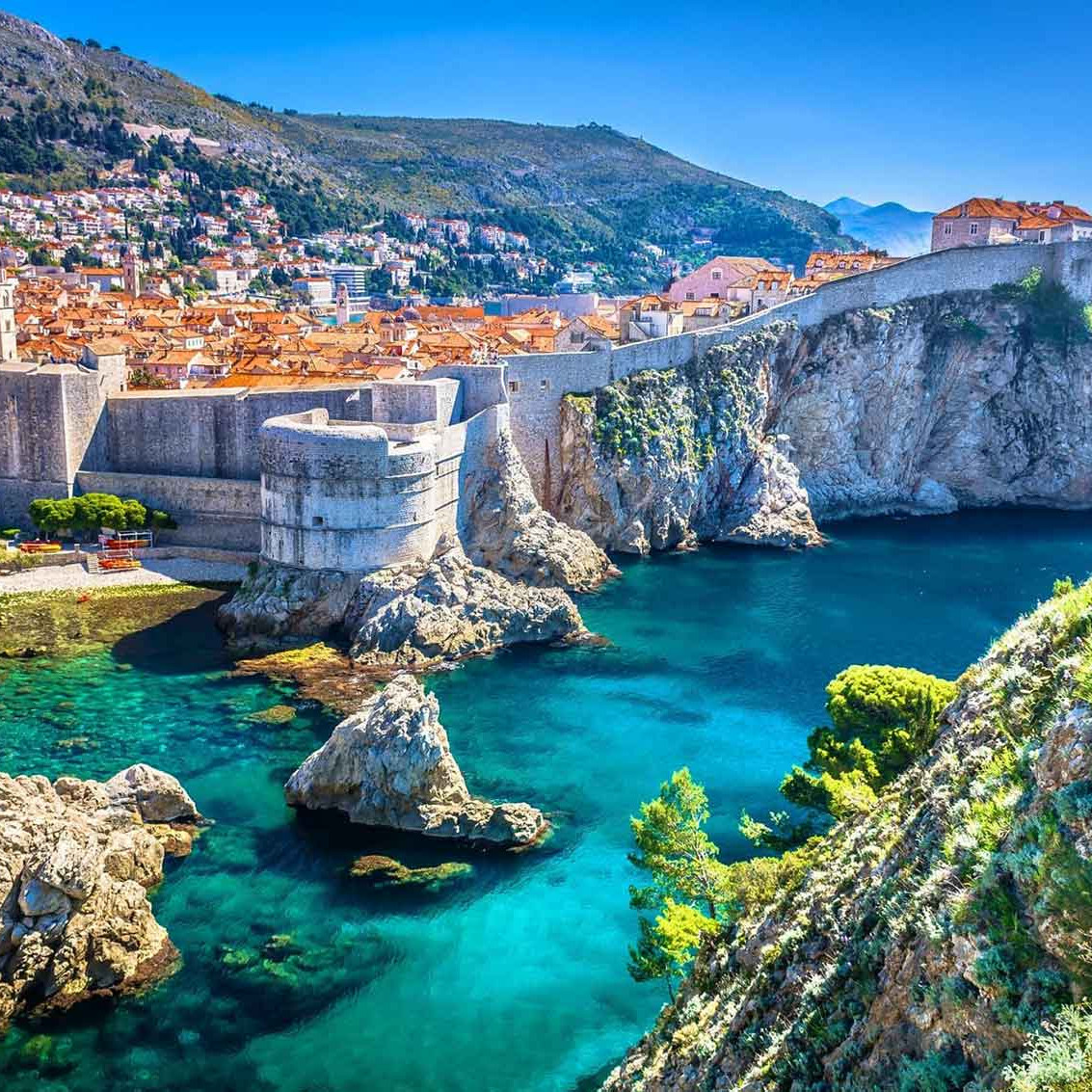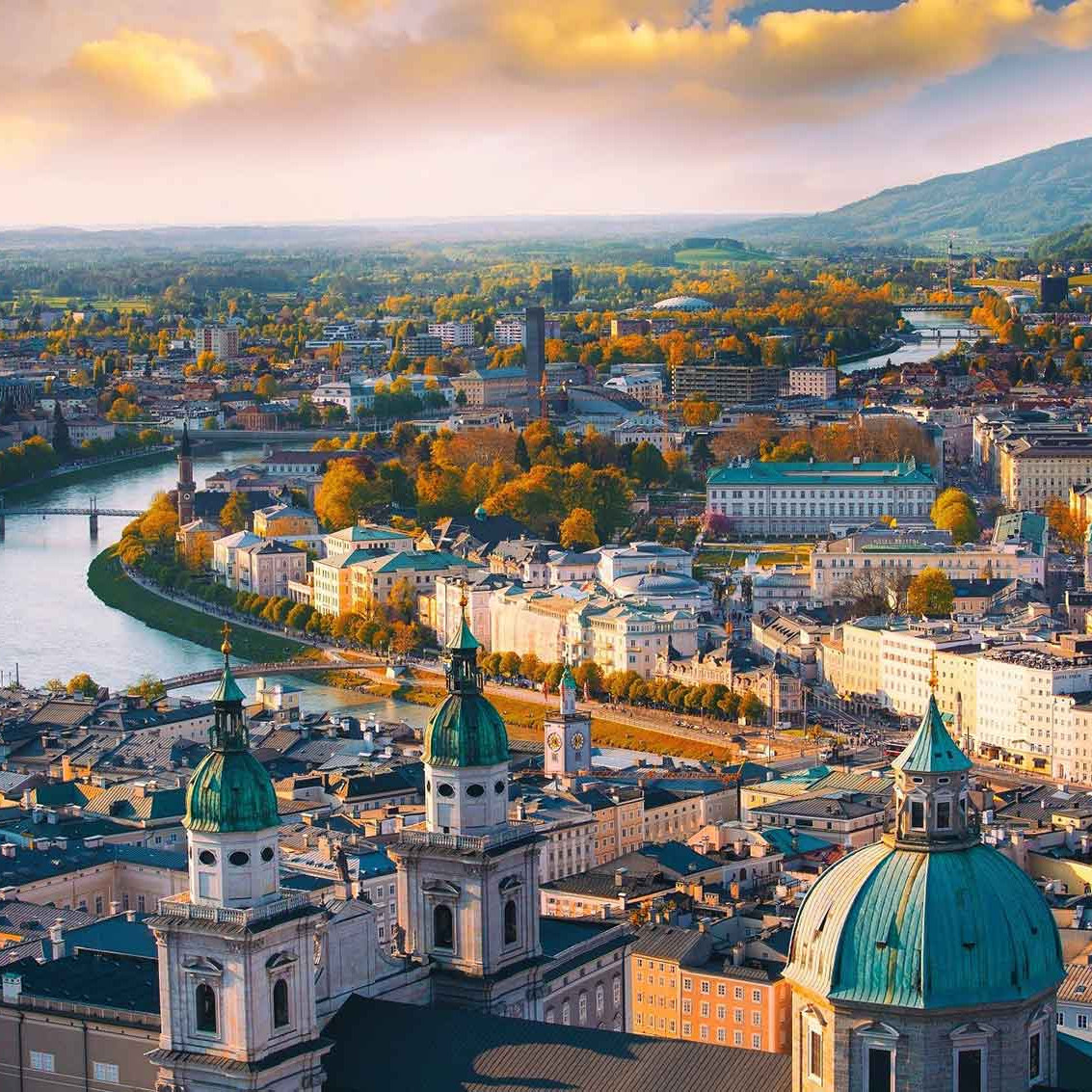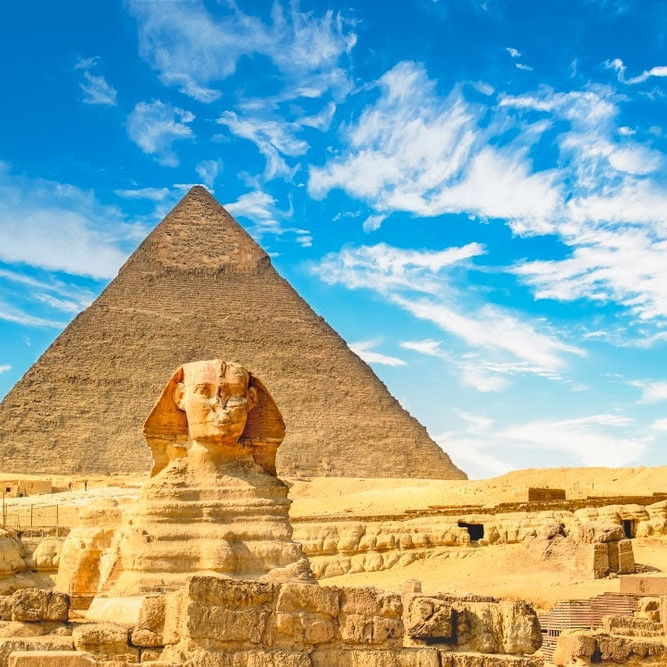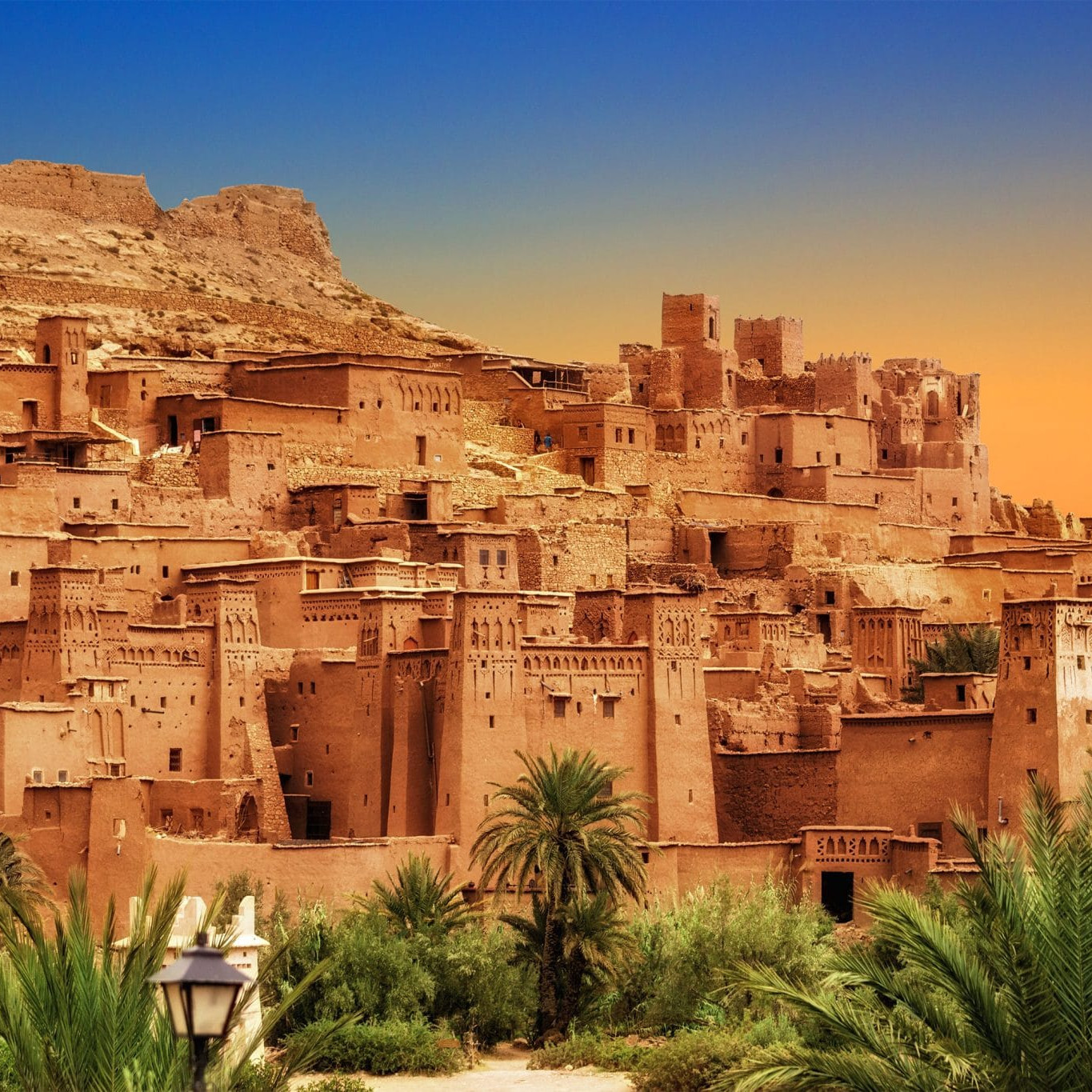Located in the heart of Europe, Belgium is a small country known as the world capital of the beer and the chocolate. The country is also home to amazing architecture and picturesque cute little towns that look like they were taking out of a postcard.
Why Visit Belgium
BEER
Belgium counts more than 200 actives breweries, and is famous for the variety, uniqueness and high quality of its beer. The country has approximately 1600 different types and brands of beer, so you could drink a different beer every single day for more than 4 years without repeating.
ARCHITECTURE
Very similar to its neighbor countries, Belgium has an exquisite architecture that showcases the different eras and several shifts in design that the country had throughout history. The country is especially famous for its Art Nouveau buildings from the late 19th and early 20th centuries.
CHOCOLATE
Since the pralines were invented in Brussels in 1912, belgian chocolate has become an important part of the culture of the country, becoming an essential industry and an important part of the nation’s culture and economy. Belgium is considered the chocolate capital of the world, with over 2,000 chocolatiers throughout the country.
VILLAGES
Belgium is also known for its picturesque villages, which offer a glimpse into traditional Belgian life. From the cobbled streets and winding canals of Bruges to the historic architecture of Ghent, Belgium’s villages are sure to charm any traveler.
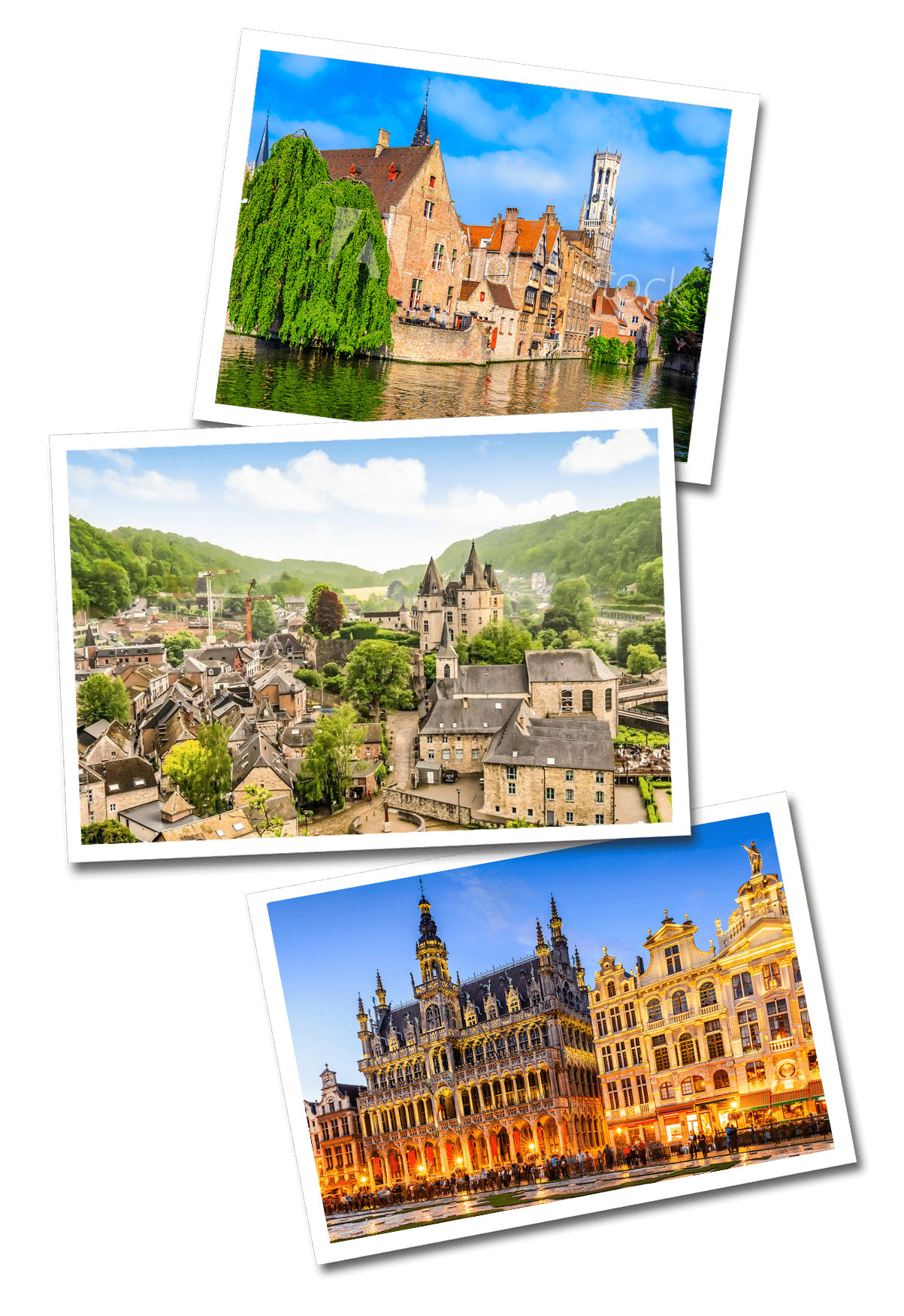
Located in the heart of Europe, Belgium is a small country known as the world capital of the beer and the chocolate. The country is also home to amazing architecture and picturesque cute little towns that look like they were taking out of a postcard.

Why Visit Belgium
BEER
Belgium counts more than 200 actives breweries, and is famous for the variety, uniqueness and high quality of its beer. The country has approximately 1600 different types and brands of beer, so you could drink a different beer every single day for more than 4 years without repeating.
ARCHITECTURE
Very similar to its neighbor countries, Belgium has an exquisite architecture that showcases the different eras and several shifts in design that the country had throughout history. The country is especially famous for its Art Nouveau buildings from the late 19th and early 20th centuries.
CHOCOLATE
Since the pralines were invented in Brussels in 1912, belgian chocolate has become an important part of the culture of the country, becoming an essential industry and an important part of the nation’s culture and economy. Belgium is considered the chocolate capital of the world, with over 2,000 chocolatiers throughout the country.
VILLAGES
Belgium is also known for its picturesque villages, which offer a glimpse into traditional Belgian life. From the cobbled streets and winding canals of Bruges to the historic architecture of Ghent, Belgium’s villages are sure to charm any traveler.
- Name: Kingdom of Belgium
- Capital: Brussels
- Official Languages: German, French, Dutch
- Currency: Euro
- Time Zone: UTC+1:00
- Name: Kingdom of Belgium
- Capital: Brussels
- Official Languages: German, French, Dutch
- Currency: Euro
- Time Zone: UTC+1:00
Bucket List
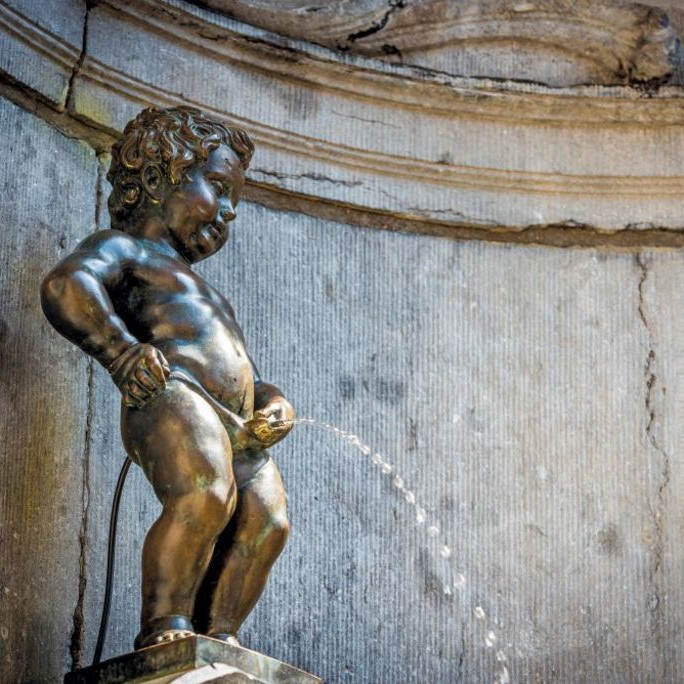
Check out the Manneken Pis in Brussels
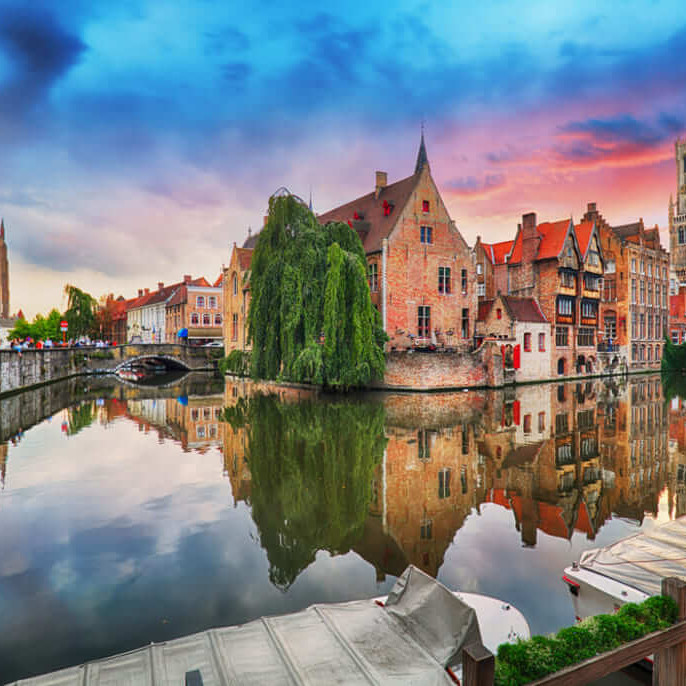
Visit Bruges
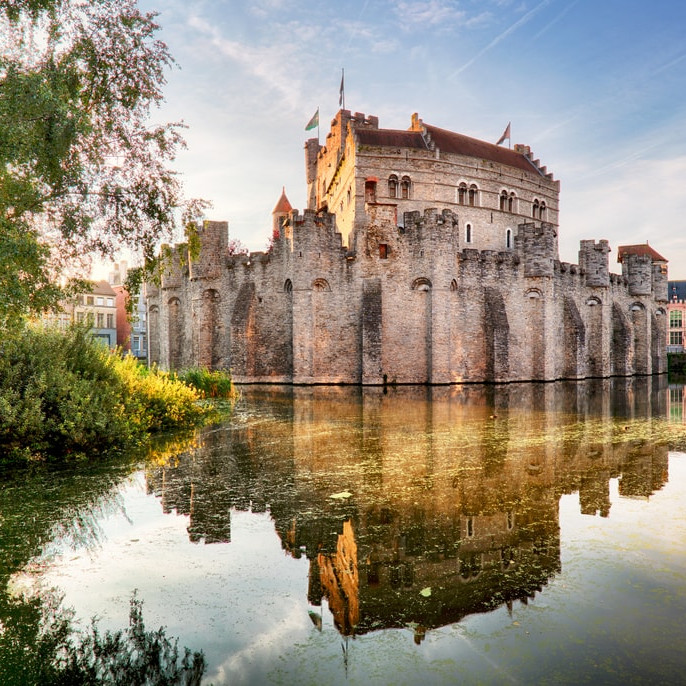
Check out the castles in Ghent
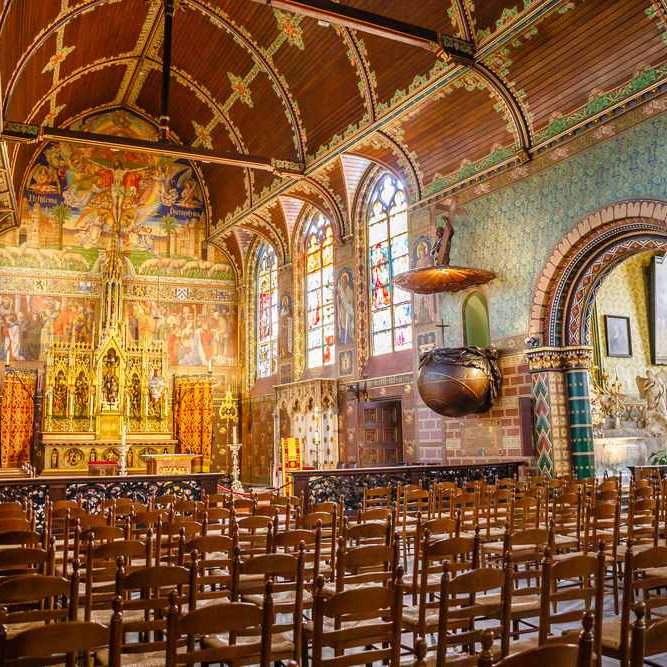
Visit the Basilica of the Holy Blood

Try some belgian chocolate & pralines

Taste some beers at the Beer Museum in Bruges
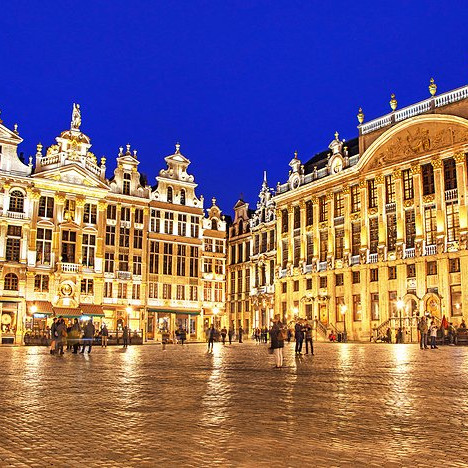
Spend some time at the Grand Place in Brussels
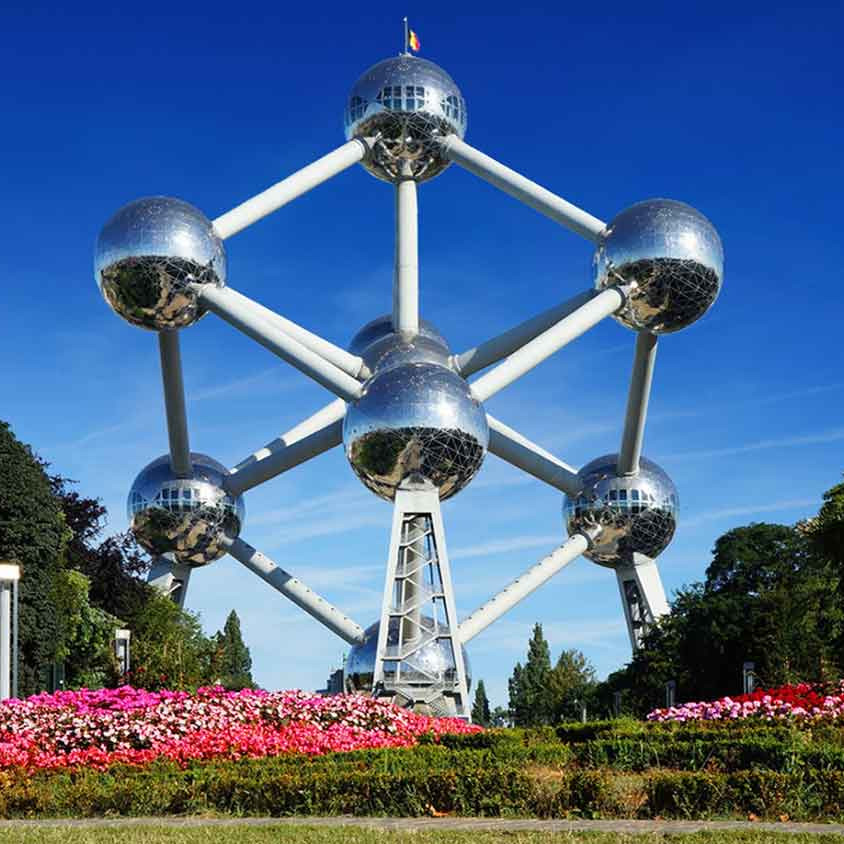
Go check the Atomium
What to expect
LANGUAGE
Belgium’s official language is divided into three: Dutch, French, and German. Dutch is the primary language in Flanders, while French is spoken in Wallonia and Brussels, which is bilingual. German is spoken in the country’s eastern region. However, most Belgians speak English, especially in tourist areas, making it easy for travelers to communicate with locals.
ELECTRICITY
In Belgium the standard voltage is 230 V and the frequency is 50 Hz. That’s the standard voltage in the UK, Europe, Australia and most of Asia and Africa; If you are traveling from the US you will need an adaptor.
CURRENCY
Belgium’s currency is the Euro (EUR). As of May 5, 2023, the exchange rate to USD is approximately 1 EUR = 1.14 USD. Travelers can exchange currency at banks, exchange offices, or ATMs, which are widely available throughout the country. Credit cards are also widely accepted in most establishments, and many ATMs offer the option to withdraw cash in different currencies.
CLIMATE
Belgium has a moderate maritime climate with temperatures ranging from 0°C (32°F) in winter to 25°C (77°F) in summer. Rainfall is relatively evenly distributed throughout the year. Travelers should bring appropriate clothing for the season, with lightweight clothing recommended for summer and warm clothing for winter. Spring and fall are unpredictable, so it’s advisable to bring layers.
SAFETY
Belgium is generally safe, although there is some minor crime in the big cities. Pickpocketing could happen just like anywhere else. Take common sense precautions and keep your valuables out of sight just in case. Due to recent incidents, it is recommended to be vigilant for terrorist attacks.
How to get around Belgium
Belgium is a relatively small country, which makes it easy to travel around. Here are the different ways to get around Belgium:
- Train: Belgium has an extensive train network, operated by the national railway company, SNCB/NMBS. Trains are fast, efficient and reliable, connecting all major cities and towns. You can buy tickets at train stations or online.
- Bus: Buses are operated by several companies and are a cheaper alternative to trains. They connect smaller towns and villages and can be useful for short distances. You can buy tickets on the bus or at the station.
- Tram and metro: Trams and metros are available in Brussels and Antwerp. They are fast and efficient ways to get around the city center. You can buy tickets at the stations or using the STIB/MIVB app.
- Bicycle: Belgium is a bike-friendly country with many cycle paths and rental options. You can rent a bike in most cities and towns, and it’s a great way to explore the countryside and small villages.
- Car: If you prefer to drive, you can rent a car at major airports and cities. However, be aware that traffic can be heavy and parking can be expensive in cities.
- Walking: Walking is an enjoyable way to explore the city centers, especially in Brussels and Bruges, where many attractions are located close to each other. It’s also a great way to discover small streets and hidden gems.
Visa Policy
Belgium is a member of the Schengen Area, which means that most visitors do not need a visa to enter for stays up to 90 days within a 180-day period. However, citizens of some countries may require a visa to enter Belgium. The list of countries whose citizens require a visa to visit Belgium can be found on the website of the Belgian Ministry of Foreign Affairs. These include countries such as Afghanistan, Iraq, Syria, and Yemen, among others.
Visitors who require a visa to enter Belgium must apply for one at the nearest Belgian embassy or consulate in their home country. The visa application process typically requires the applicant to provide a valid passport, proof of travel arrangements, and evidence of sufficient funds to cover their stay in Belgium. Processing times and fees may vary depending on the applicant’s nationality and the type of visa being applied for.
It’s important to note that even if a visa is not required to enter Belgium, visitors must still meet certain entry requirements, such as having a valid passport and proof of sufficient funds to cover their stay. Additionally, visitors may be subject to a border control check upon arrival in Belgium. It’s recommended to check the latest visa requirements and travel advisories before planning a trip to Belgium.
SUBSCRIBE!
Are you a globetrotter? Join our platform and get exclusive travel tips, getaways and more!
Croatia
Croatia is a small & impressive country that has just recently become a popular mediterranean destination, featuring turquoise waters and..
Austria
Travel Austria and explore its mountainous landscapes, picturesque villages, incredible castles and architecture and rich musical heritage.
Namibia
Travel to Namibia, a beautiful and diverse country known for its stunning natural landscapes and wildlife-rich national parks...
Mauritius
Travel Mauritius, a country renowned for its natural beauty, pristine beaches, and clear turquoise waters. The island is a perfect...
Egypt
Explote Egypt, home to one of the principal ancient civilizations and the world’s earliest urban and literate society. With over 5,000...
Croatia
Croatia is a small & impressive country that has just recently become a popular mediterranean…
Austria
Travel Austria and explore its mountainous landscapes, picturesque villages, incredible castles and…
Morocco
Morocco, Mythical, colorful, exotic and diverse, and just some of the reasons why everybody should…


